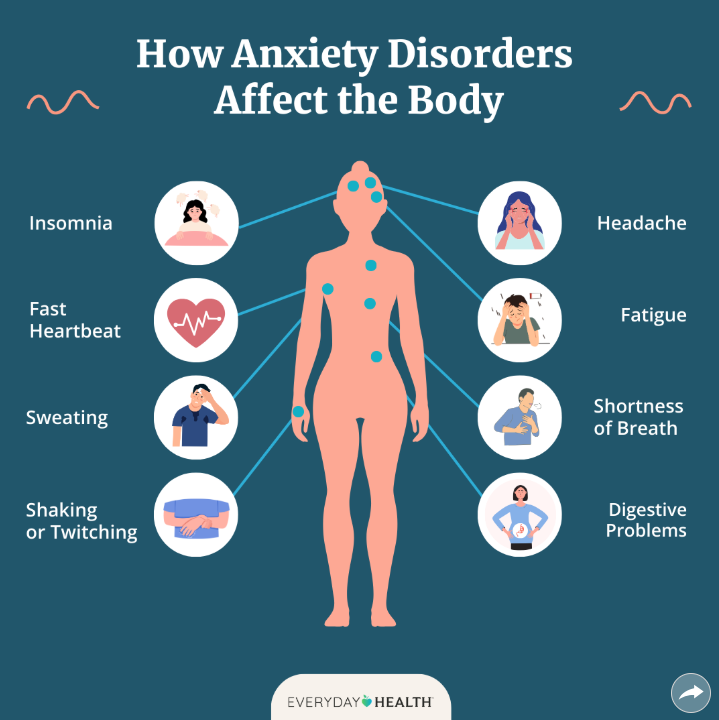Living with Anxiety: A Personal Journey and Practical Strategies for Managing It
Let’s get one thing straight from the start: if you think saying, “I have anxiety” is a sign of weakness, you’re missing the bigger picture. Anxiety is a fundamental part of the human experience. Most people, at some point in their lives, experience stress, worry, or fear. What makes my experience—and perhaps yours—different is the intensity and persistence of that anxiety.
For me, anxiety isn’t just a fleeting nervousness before a big event. It’s a constant presence, something I physically feel in my body. I can’t simply stop taking medication without experiencing withdrawal-like symptoms. I’ve experimented with natural remedies like ashwagandha, lavender, and valerian root, but they only scratch the surface. Managing anxiety requires a deeper, more comprehensive approach.
My Battle with Anxiety
My struggles with anxiety became unmanageable during college. Test anxiety was my biggest enemy. I remember sitting in my car before exams, gripping the steering wheel, trying not to vomit. In the bathroom, I’d hyperventilate. During the test, my brain would freeze, unable to recall even the simplest information.
One thing that helped was calling my dad—somehow, even from miles away, he had the ability to calm me down. But when I told him I wanted to see a therapist, he hesitated. He worried I’d be labeled as “crazy” and that I’d carry that stigma with me beyond college, like an invisible but permanent mark.
That conversation revealed something crucial: the stigma surrounding mental health is still very real.

The Stigma Surrounding Mental Health
Although we’ve made progress in normalizing conversations about mental health, we still have a long way to go. Public figures like Carson Daly, Meghan Markle, and Selena Gomez have shared their own struggles with anxiety and depression, helping to challenge outdated stereotypes.
Despite this, many people still feel ashamed or afraid to seek help. The fear of being judged can prevent people from getting the support they need. We need to keep talking about mental health openly, honestly, and without shame.
Understanding the Physical Impact of Anxiety
Anxiety isn’t just something that exists in your head—it can have very real physical symptoms. Many people, including myself, have experienced anxiety so intense that it mimics serious medical conditions like heart attacks.
Common Physical Symptoms of Anxiety:
- Rapid heartbeat
- Chest tightness
- Shortness of breath
- Dizziness
- Muscle tension
- Stomach issues
These sensations can be terrifying, making it even harder to convince yourself that it’s “just anxiety.” The first step in managing it is recognizing that your body is reacting to a perceived threat—even if that threat isn’t real.
Navigating Extreme Anxiety: What Actually Helps?
When you’re dealing with severe anxiety, simply drinking chamomile tea or taking deep breaths won’t always cut it. A comprehensive, multi-faceted approach is often necessary.
1. Meditation and Mindfulness
Meditation has been a game-changer for me. Even just 5–10 minutes of mindfulness meditation per day can help rewire your brain to be less reactive to stress. I recommend trying guided meditations through apps like Headspace or Calm.
2. Journaling for Clarity
Writing down my thoughts has been one of the most effective tools for managing my anxiety. Keeping a journal allows me to:
- Identify triggers
- Recognize patterns in my anxiety
- Release overwhelming thoughts onto paper
If you’re new to journaling, try starting with simple prompts like:
- “What am I feeling right now?”
- “What triggered my anxiety today?”
- “What is something positive that happened today?”
3. Physical Activity and Anxiety
Exercise is one of the most effective natural remedies for anxiety. Physical activity releases endorphins, which are natural mood boosters. Even something as simple as a brisk walk can help.
Some of the best forms of exercise for anxiety relief include:
- Yoga: Helps regulate breathing and reduce stress (Yoga with Adriene is a great place to start). Grab a free Hatha Yoga Guide and start your journey on easing your anxiety symptoms.
- Running: Provides an outlet for nervous energy.
- Dancing: Fun and a great way to get moving.
4. Natural Remedies: Do They Work?
While herbal supplements won’t cure anxiety, they can provide some relief when used correctly. Some options to consider:
- Lavender: Known for its calming properties.
- Chamomile: Can help with sleep and relaxation.
- Valerian Root: A natural sedative, often used for sleep issues.
Important: Always talk to a healthcare professional before adding supplements to your routine.
5. Seeking Professional Help
If anxiety is interfering with your ability to function, seeing a professional is one of the best things you can do. Therapy options like Cognitive Behavioral Therapy (CBT) have been proven to be incredibly effective. Platforms like BetterHelp and Talkspace offer convenient online therapy options.
6. The Power of Talking to Someone
Never underestimate the power of opening up. Whether it’s a trusted friend, family member, or therapist, talking about your anxiety can lighten the emotional burden.
The Role of Emotional Support Animals
For many, therapy or emotional support animals provide immense comfort. My emotional support dog, Kamo, has been a lifesaver. He knows when I’m anxious and provides an instant sense of calm. If you’re considering an ESA, you can learn more from organizations like ESA Doctors.
Dietary Considerations for Anxiety
What you eat can impact your anxiety levels. Some dietary changes that may help:
✅ Increase intake of whole foods like fruits, vegetables, and healthy fats.
✅ Reduce caffeine and sugar, which can worsen anxiety.
✅ Stay hydrated—dehydration can cause fatigue and irritability.
For more detailed guidance, check out resources like the Harvard T.H. Chan School of Public Health on diet and mental health.
Cutting Out Negative Influences
One of the hardest but most rewarding things I’ve done is removing toxic people from my life. I realized that some friendships were draining me rather than supporting me. A “friend cleanse” may sound harsh, but sometimes, distancing yourself from negativity is necessary for your well-being. Friends should not make you feel bad about who you are.
If someone doesn’t support you or makes you feel worse about your anxiety, it might be time to re-evaluate their role in your life.
Final Thoughts: Living with Anxiety on Your Terms
Anxiety doesn’t have to define you. By incorporating meditation, journaling, physical activity, professional support, dietary changes, and a strong support system, you can manage anxiety more effectively.
Remember: Seeking help is a sign of strength, not weakness. You’re not alone in this journey, and there are countless resources available to support you.
FAQs
1. Can anxiety ever be “cured”?
Anxiety can be managed, but for many people, it’s a lifelong condition. The key is learning strategies to reduce its impact.
2. Is medication necessary for treating anxiety?
Not always. Some people manage anxiety through therapy, lifestyle changes, and mindfulness. However, for severe cases, medication can be life-changing.
3. Can diet really impact anxiety?
Yes! Reducing caffeine, sugar, and processed foods while eating a balanced diet can help stabilize mood and reduce anxiety.
4. How do I know if I need therapy for anxiety?
If anxiety is interfering with your daily life, relationships, or work, therapy may be beneficial.
5. What’s the best way to help a friend with anxiety?
Be patient, listen without judgment, and ask how you can support them. Sometimes, just being there is enough.
6. How do I know which type of anxiety disorder I have?
You need to be diagnosed by a professional but you can use this guide published by the Cleveland Clinic to guide you.






